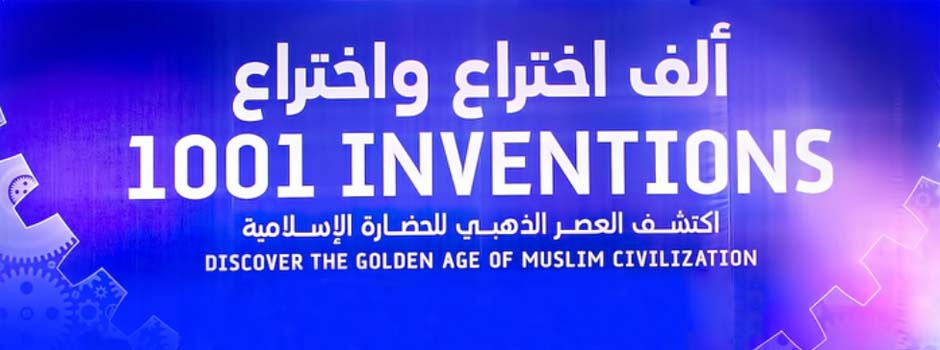
1001 Inventions exhibition uncovers the scientific achievements of Muslim Civilization 1001 Inventions and Arabick Roots exhibitions in Doha
Nov 02, 2012 Exhibition

Brought to Qatar’s public by Qatar Museums Authority and the Museum of Islamic Art, in partnership with 1001 Inventions and Qatar Shell; 1001 Inventions exhibition takes visitors through the works of scientists and scholars during the Golden Age of Muslim Civilization, while Arabick Roots reveals the influence of this science on the scientific revolution and lifestyle in Europe in the 17th century through showcasing magnificent objects and priceless manuscripts.
“We owe our rich scientific heritage to cultures and civilizations worldwide. With these two exhibitions we rediscover some of the roots of modern civilization,†said Aisha Al Khater, Director of the Museum of Islamic Art. “By reinvigorating this theme and showcasing past and modern thinkers, we hope to stimulate young minds and revive the respect that all cultures deserve.â€
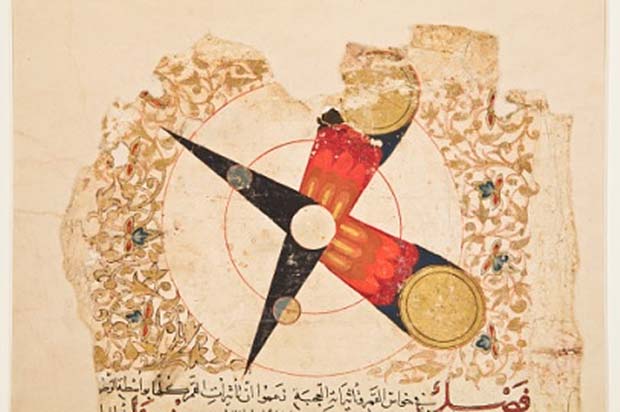 Diagram of a solar eclipse / From The Wonders of Creation and the Oddities of Existence / Text by Zakariyya ibn Muhammad al-Qazwini / Paper, ink, pigment / Syria, Late 13th century AD / MS.647 p.29 / Courtesy of 1001 Inventions
Diagram of a solar eclipse / From The Wonders of Creation and the Oddities of Existence / Text by Zakariyya ibn Muhammad al-Qazwini / Paper, ink, pigment / Syria, Late 13th century AD / MS.647 p.29 / Courtesy of 1001 Inventions
“As a Qatari I’m proud to be part of such great initiatives. Bringing these two important international exhibitions to Qatar will inspire young Qataris to build on their rich and diverse scientific heritage that had enlightened the world in the Golden Ages,†said Sheikh Thani Al Thani, Deputy General Manager of Qatar Shell.
“The themes of these two exhibitions, science and education, are an integral part of Shell’s social investment programme here in Qatar and support the social development pillar of the Qatar National Vision 2030,†added Sheikh Thani.
1001 Inventions Exhibition celebrates the inventions and innovations from Muslim Civilisation, whose impact on science and technology can still be seen all around us today. Indeed, the experimental scientific method, the basis of all modern technological advancement, came from the work of Hassan ibn Al-Haytham a thousand years ago.
Ibn Al-Haytham laid the foundations of Optics including the explanation of the scientific phenomenon ‘Camera Obscura’ – which is still the basic principle used in modern cameras. Many of Ibn Al-Haytham’s works were translated into Latin by the medieval scholar Gerard of Cremona. The works included Al Haytham’s ‘book of Optics’ which had a deep influence on many scientists in Europe that lasted till the 17th century - Arabick Roots reveals.
Ibn Al-Haytham is just one of the scientific pioneers featured within both exhibitions; visitors will also be introduced to Master Engineer Al-Jazari - inventor of the fabled Elephant Clock and numerous mechanisms that are used in every machine in the world today.
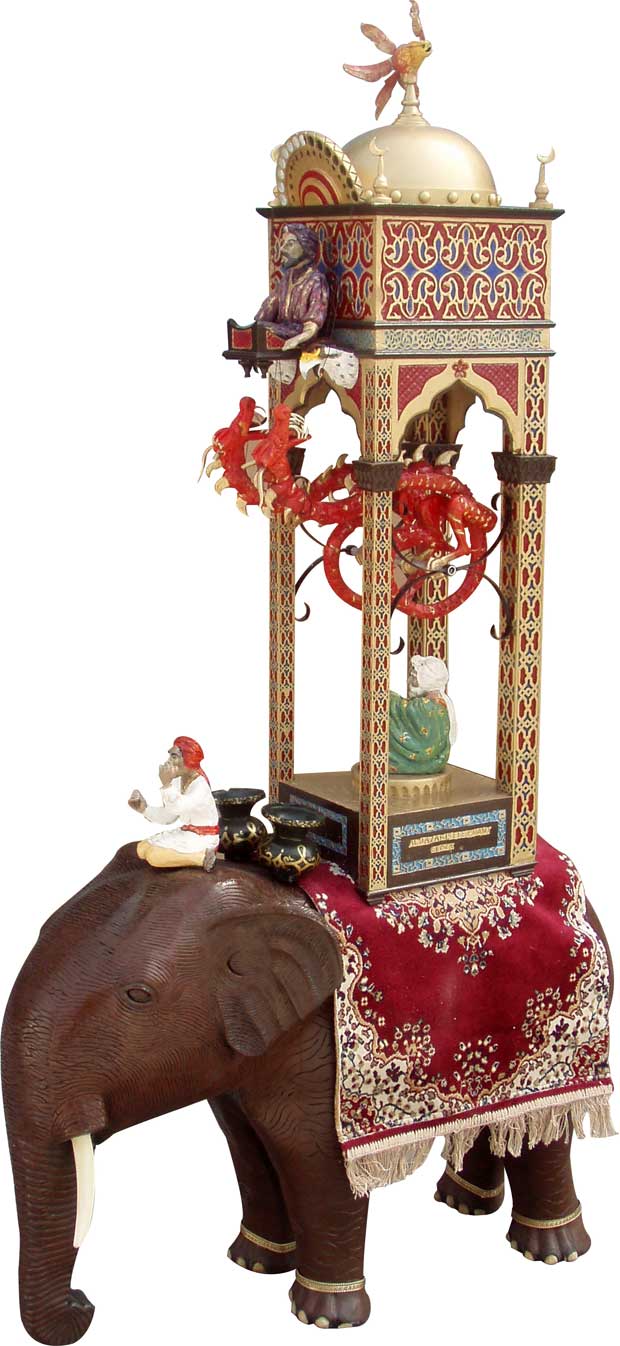 Elephant Clock invented by Master Engineer Al-Jazari / Courtesy of 1001 Inventions
Elephant Clock invented by Master Engineer Al-Jazari / Courtesy of 1001 Inventions
They will discover how Andalusian physician Al-Zahrawi invented hundreds of surgical instruments and procedures more than a thousand years ago that are still saving lives in modern hospitals; and they will meet Fatima Al-Fihri, the young woman who founded and designed the world’s first modern University, which offered free education to men and women of all backgrounds.
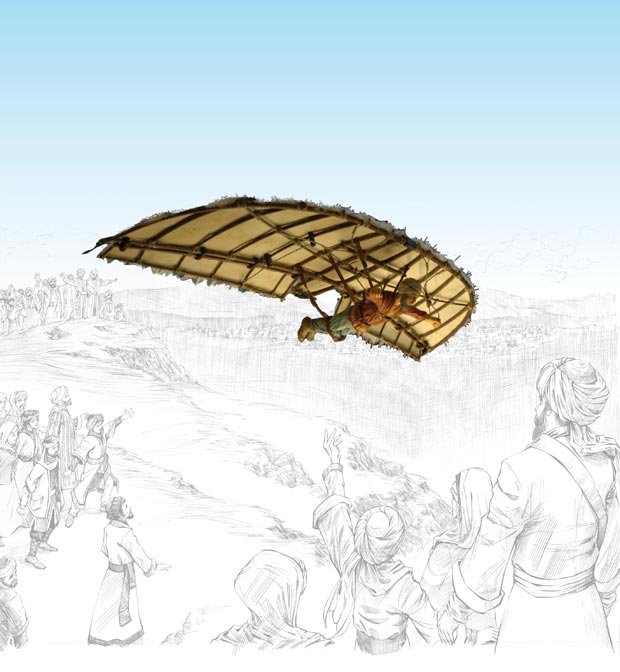 Artistic impressions of Abbas ibn Firnas and his successful 9th-century flight / Courtesy of 1001 Inventions
Artistic impressions of Abbas ibn Firnas and his successful 9th-century flight / Courtesy of 1001 Inventions
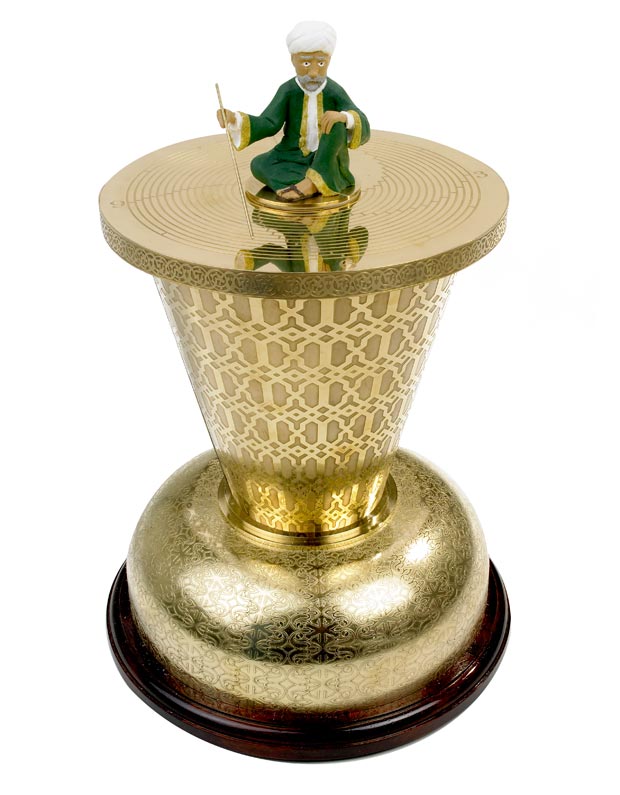 A scale model of Al-Jazari’s 13th-century Scribe Clock / Courtesy of 1001 Inventions
A scale model of Al-Jazari’s 13th-century Scribe Clock / Courtesy of 1001 Inventions
“Muslim civilization stretched from southern Spain as far as China, and for a thousand years, scholars of many faiths built on the ancient knowledge of the Egyptians, Greeks and Romans, making breakthroughs that helped pave the way for the Renaissance.,†explains Ahmed Salim, Producer and Director of1001 Inventions.
“The discoveries made by men and women in Muslim civilization — from automatic machines and medical marvels to astronomical observations and inspiring architecture — have left their mark on the way we live today.†he added.
1001 Inventions is a brand that has reached over 50 million people worldwide, and the exhibition by the same name is now open in Doha and showcases these and many more discoveries from the Golden Age of Muslim civilization - including, the first modern university that was built by Fatima Al Fihri in Fez, magnificent time telling machines, surgical tools and mechanical devices – and unveils the cultural and historical context of these discoveries.
The 1001 Inventions Exhibition showcases the influence of the Golden Age of Muslim civilisation on Renaissance. But much less has been written about eastern influence on the scholars of 17th century Europe. At this time in Europe, scholars were rejecting the ways of their predecessors. They promoted a ‘new philosophy’ that relied on mathematical demonstration, proof and experiment instead of theory and logic alone. The scientific revolution sprang from this successful approach, led by scholars like Descartes, Boyle, Newton and Halley.
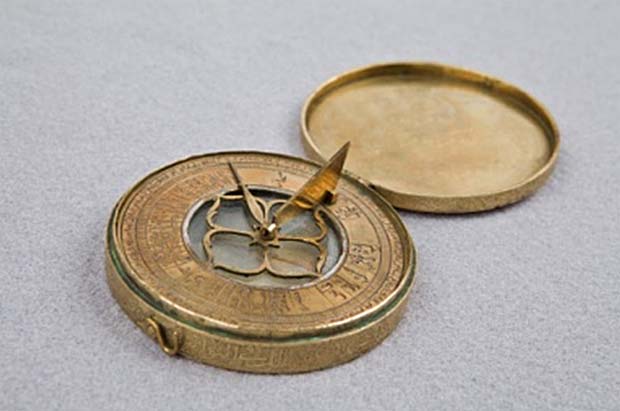 Qibla indicator / Abd al-A’imma / Brass / Iran (Isfahan) / Late 17th century AD / MW.452 / Courtesy of 1001 Inventions
Qibla indicator / Abd al-A’imma / Brass / Iran (Isfahan) / Late 17th century AD / MW.452 / Courtesy of 1001 Inventions
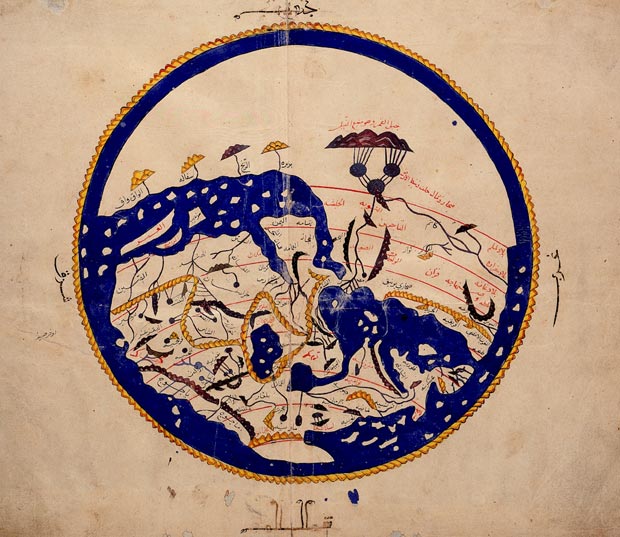 Al-Idrisi’s 12th-century world map / Courtesy of 1001 Inventions
Al-Idrisi’s 12th-century world map / Courtesy of 1001 Inventions
In this enlightened period, Europe was at an intellectual advantage over the East. The Muslim world was then producing less and less original science, and it might seem safe to assume that Europe’s ‘new philosophers’ would simply reject ancient knowledge. But nothing could be further from the truth. Evidence now shows that the 17th-century scholars of the scientific revolution appreciated and built on ideas from other times and places and honoured their pioneers.
“The most important lesson I’ve learned from developing Arabick Roots is the meaninglessness of the term ‘Clash of Civilizations’ – when cultures learn from each other, they are unlikely to belittle one another,†said Rim Turkmani, curator of Arabick Roots Exhibition. “I now believe that an understanding of science’s international heritage is essential for its progress.â€
Arabick Roots was inaugurated by Her Highness Sheikha Moza Bint Nasser, Chairperson of Qatar Foundation for Education, Science and Community Development, at its premiere at the Royal Society in London last year. The Doha version of the exhibition was specially adapted for the Qatari audience through a collaboration between 1001 Inventions and MIA, and is expected to be a launch pad for MIA’s own internationalized, touring exhibition.
Comments
Add a comment